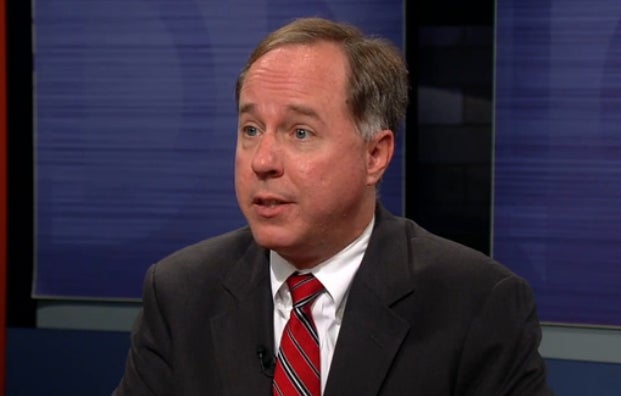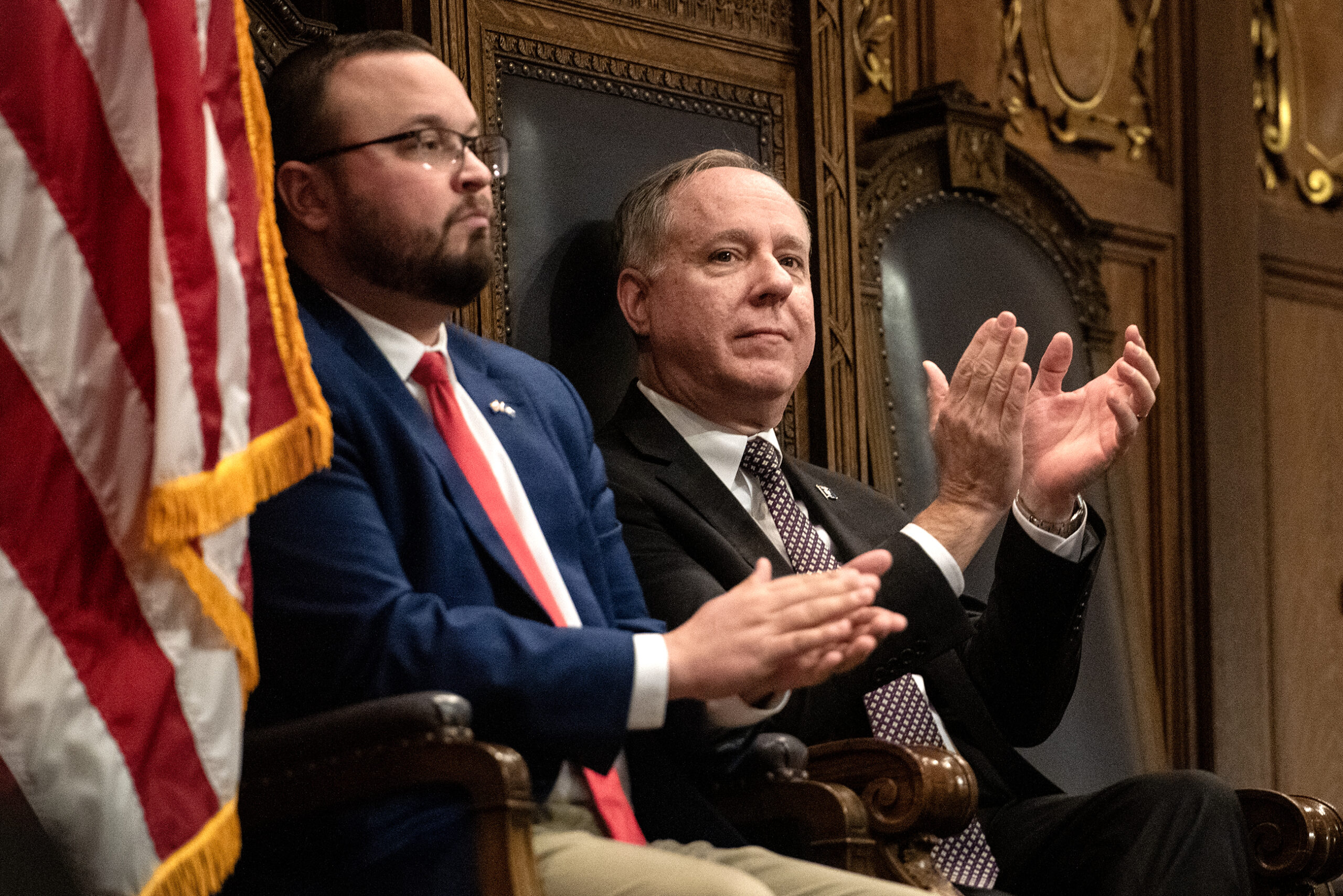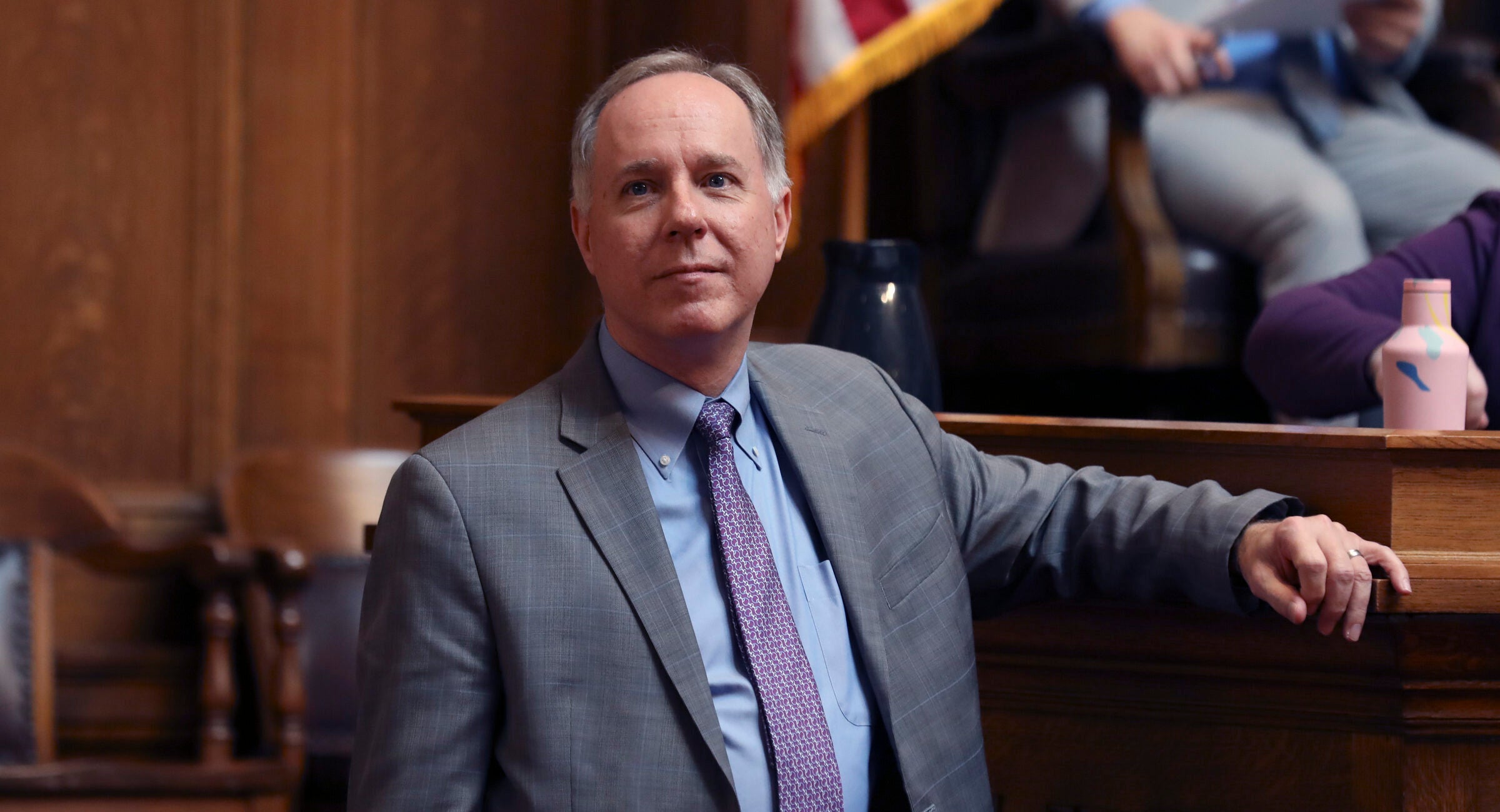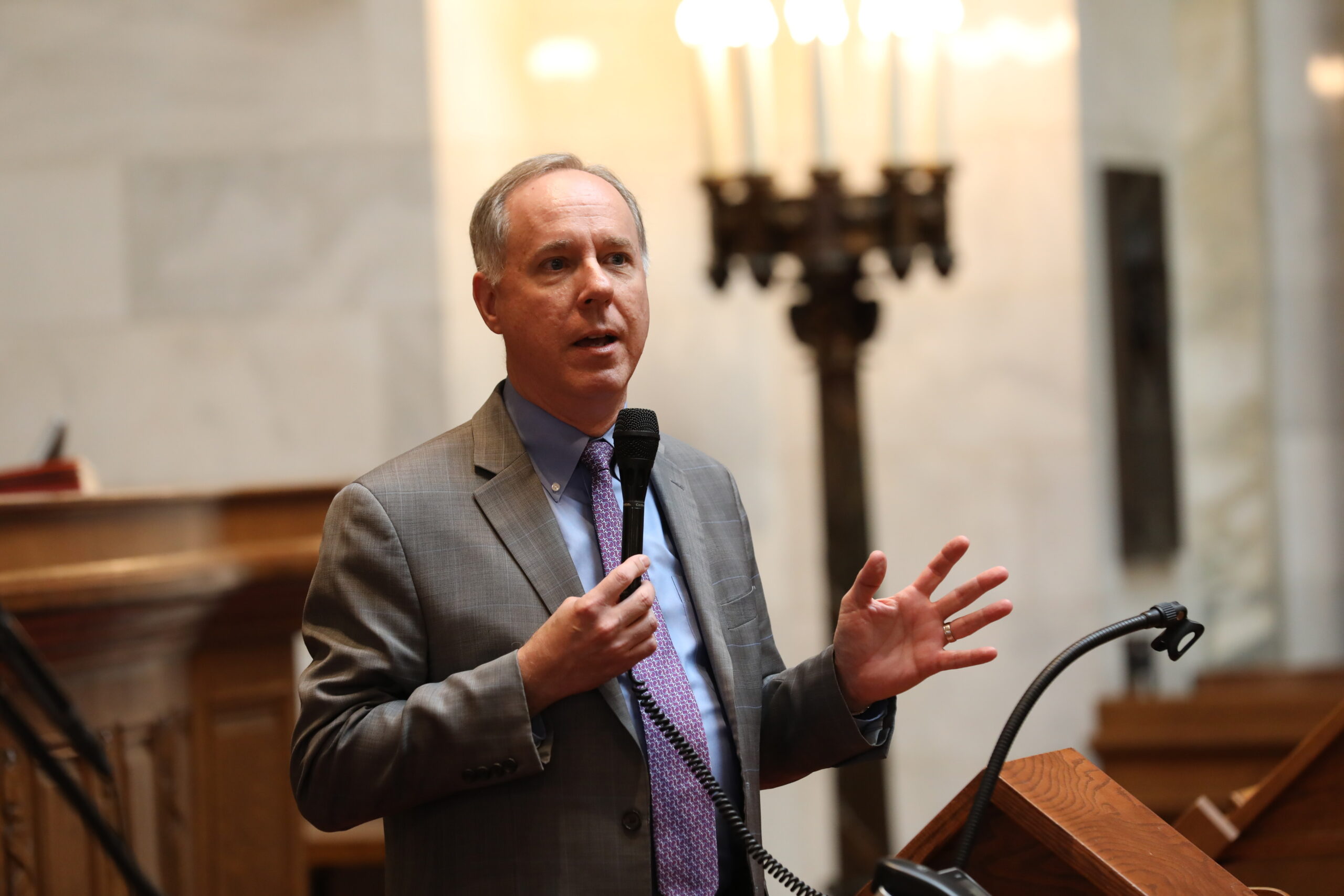Several high-profile conservative bills remain on the bubble with just a few months remaining before the state Legislature adjourns for the 2018 campaign season.
Assembly Speaker Robin Vos, R-Rochester, won’t rule out passing them, despite lingering resentment among Republicans over how negotiations ended in Wisconsin’s lengthy state budget battle.
“Conservative legislation has happened the entire time that I’ve been speaker,” Vos said Friday in an interview with Wisconsin Public Television. “If they’re good legislation, they’ll pass in our house.”
News with a little more humanity
WPR’s “Wisconsin Today” newsletter keeps you connected to the state you love without feeling overwhelmed. No paywall. No agenda. No corporate filter.
State lawmakers have already had their last session day of 2017. They scheduled to return in January, but they might only be in session for a month or two before they adjourn for good next year.
Republicans who run state government remain at odds on several bills. They include:
Concealed Carry Without A Permit
Vos said he personally favored the concept of a bill that would let people carry concealed weapons in Wisconsin without permits.
Still, his comments suggested the Legislature might not approve that plan given the circumstances.
“Gov. Walker has come out saying that the system that we have works fine,” Vos said, referencing comments Walker made in June. “He’s right about that. There’s not a huge need to make a change.”
Vos said he was open to discussing the issue, “but I want to make sure Gov. Walker and my colleagues are in the same place.”
Banning Fetal Tissue Research
Vos said there’s still no consensus among Republicans on plans that would ban research on aborted fetal tissue in Wisconsin.
“There’s two competing bills,” Vos said. “I think they both have merits. Neither one has the ability to pass in our caucus.”
One of the bills would completely ban the use of aborted fetal tissue. Another would target just the sale of fetal tissue.
“I think the vast majority of Republicans have considered themselves pro-life, and we want to make sure we do those things, but we’re also pro-research,” Vos said.
Civil Asset Forfeiture
Vos also suggested there are competing ideas on a plan that would restrict the ability of law enforcement to seize property through a process known as civil forfeiture.
Police can currently seize property from people suspected of committing crimes, but a new plan from Sen. David Craig, R-Town of Vernon, would only let them seize property from convicted criminals.
Vos said Assembly Republicans were working on a compromise.
“Rep. Mark Born (R-Beaver Dam) has kind of taken the lead in our caucus to try to find a consensus between those who worry about protecting peoples’ Fourth Amendment rights but also the ability of law enforcement to use those funds to help combat drugs,” Vos said.
Other Issues:
Vos has said previously the Assembly will wait to see if the Senate passes a bill that would punish so-called “sanctuary cities.” The Assembly passed a version of the plan last session, but it was never taken up by the Senate.
Vos sparred last month with Sen. Steve Nass, R-Whitewater, the sponsor of the sanctuary cities bill, saying he wished Walker “hadn’t negotiated with terrorists” when he struck a deal with Nass and two other GOP senators to pass the 2017-19 budget in the Senate.
Nass went on to suggest that it was a strategy by Vos to kill conservative bills.
Vos disputed that assertion when asked about it Friday on Wisconsin Public Television.
“It’s kind of typical of what Steve Nass does,” Vos said. “He’s kind of a flamethrower.”
Vos also pushed back against the idea that Wisconsin Republicans could lose seats this November given all the Democratic victories in Virginia’s recent election.
“I saw what happened in Virginia,” Vos said. “The vast majority of those gains were in seats that Hillary Clinton carried in 2016. We don’t have many of those in Wisconsin.”
Republicans currently hold a 63-35 seat majority in the Assembly with one open seat.
Wisconsin Public Radio, © Copyright 2026, Board of Regents of the University of Wisconsin System and Wisconsin Educational Communications Board.





